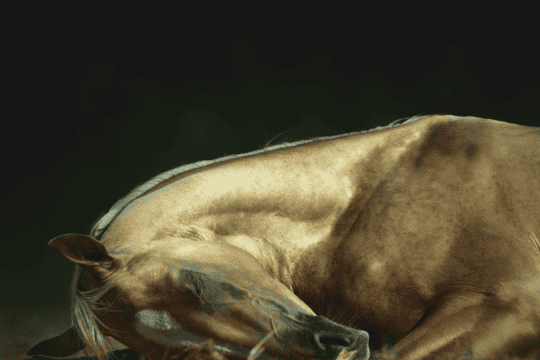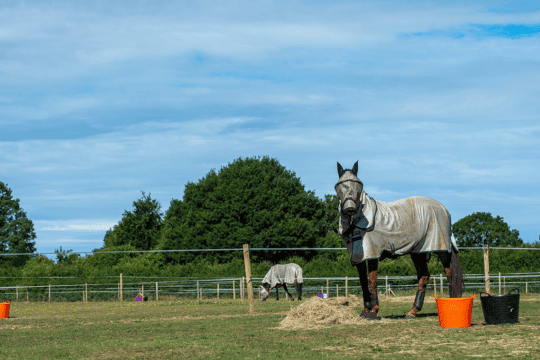If you’re looking to care for your horse more sustainably, we’re here to help you get started
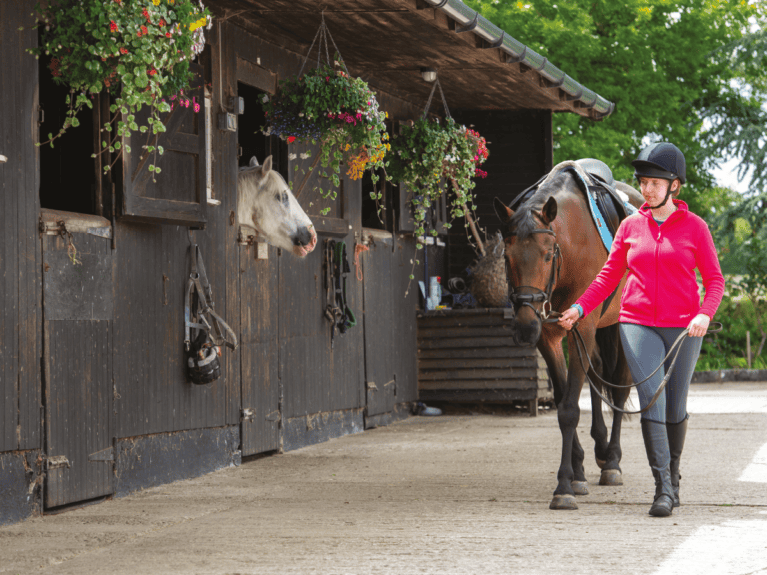
With unusual weather events becoming ever more commonplace, it’s clear climate change is happening before our very eyes.
As we become increasingly aware of our responsibilities to the planet – and the people, plants and creatures that live on it – the concepts of everyday sustainability and conservation have never been more important. Living green is becoming mainstream and is something we can easily incorporate into our daily riding and horse care routine, too. Much of it doesn’t require a huge amount of adjustment, just a little forethought, and changes needn’t be expensive. In fact, some changes might even save you money.
So, if you’re looking to make your life greener, we have some top tips for living in a more sustainable way with your horses.
Reuse and repair
Got a rug you’re not using or a piece of equipment that never sees the light of day? Why not get together with some horsey friends and organise a swap shop? And if you can’t swap it, give it away – after all, one person’s trash is another’s treasure.
Can you repurpose unwanted items to avoid landfill? A baby’s changing unit, for example, makes a great place for storing smaller items, such as bottles and grooming kit, and it’s practical, too. Charity shops are good hunting grounds, and you can pick items up for a pittance.
Buy second-hand. Visit local sales, or look online. You could snap up some real bargains, save a fortune and also limit your carbon footprint. Equally, selling anything you need to get rid of will give it a new home and bring in some extra pennies for you.
Top tip
Buy fewer items but better quality and look after them carefully so they’ll last.
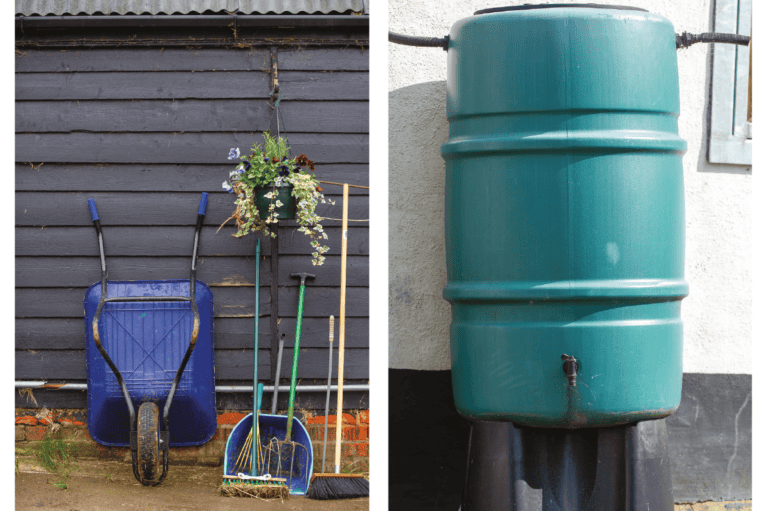
Be sustainable
Reduce your bedding use by picking out droppings daily but only removing wet every few days. If you want to go one step further, look into straw pellet or hemp bedding. Although a little more expensive to set up, it’s sustainably produced and, because it’s highly absorbent, you won’t use as much going forwards.
Many companies are taking measures to reduce their carbon footprints and some have become carbon neutral. Many have environmental initiatives in place, too, such as tree planting and recycling of packaging. Do a little homework online to see if you can switch supplier and benefit the planet.
Connect water butts to your yard guttering to collect rainwater. This can then be used for cleaning, washing, damping arenas and other similar jobs, and – if filtered and fresh – even for topping up buckets and troughs.
Yards use huge amounts of water, but there are easy ways to reduce your consumption. Automatic drinkers mean less water wastage, as will ensuring that all hoses are leak-free. And if you have any water left in buckets, find another use for it rather than throwing it away – perhaps for watering your hanging baskets or rinsing bits after use.
Top tip
Ba prepared to repair things that have broken rather than throwing them away, and check around your area for rug cleaning, reproofing and repair services, which will make your dirty or damaged rugs like new again.
Energy saving
Consider motion-sensitive lighting to stop lights being left on when there’s no one around. Take your time to work out the best way to set the timer for your needs. Switch old bulbs for LEDs, as these use less energy and last much longer.
Solar-powered lights can be used for arenas, yards and stables, and there are some relatively low-cost options available. A little online research will help you make the right choice for your situation.
If you need to divide fields or create grazing strips, consider solar-powered electric fencing. Units are charged even when the sun doesn’t shine and they’re lightweight and portable.
Buy hay and bedding from local suppliers and club together with other liveries to share deliveries of bedding, hay and feed, which will reduce lorry emissions. Try to buy as large a quantity as you can use before it spoils to avoid multiple deliveries or having to take frequent trips to the supplier to top up.
Consider whether you really have to use a vehicle. That might mean not poo picking on a quad bike or tractor, but walking instead. When you go to the yard, share journeys if you can or, if you have a bike, cycle on days when you don’t have to take anything heavy or bulky with you – any small items can be carried in a backpack.
If you have a tack room heater, run it at a lower temperature and turn it off when there’s no one around. When it’s on, ensure the door is shut to conserve the heat.
If you’re on a shared yard, try to consolidate energy-intensive activities, such as using arena lighting or travelling to shows. Not only will this be more economical for all concerned, but the amount of energy you’re using will be significantly less per person, too.
Cut down on plastic
Whenever possible look for products that use minimal, recyclable packaging. Consider whether you can switch to concentrated liquid products that need to be diluted, soap bars, or refillable products to further limit packaging waste.
Coloured buckets and trugs that have outlived their purpose can make for attractive flower containers to brighten up the yard, but don’t forget to make holes in the bases for water to drain away, or your plants will drown.
Look for products made from recycled materials. There is now clothing, rugs and even haynets made from old plastic bottles. When clothes are worn out and ready for disposal, take them to a clothing bank so they can be turned into industrial rags and have yet another useful life.
Use washable cloths for cleaning, rather than disposable wipes, and choose cleaning products that contain ingredients that are environmentally friendly.
Use empty feed sacks for storing items such as saddlecloths and anything else that needs to be kept dry. Paper ones make good bin bags – and be sure to separate your recyclable rubbish at the yard as well as at home.
Environment matters
Gardeners love manure, as it’s great for mulching and adding nutrients to the soil, so advertise yours locally for people to collect. Of course, you can put it on your own garden, too, especially if you want beautiful roses, but remember it needs to be well rotted before applying it to your flowerbeds.
Think about what you’re allowing to enter the groundwater. Limit your use of chemicals, such as outdoor cleaning solutions, vermin bait and weedkillers, and don’t soak hay for hours on end, as that brown water is highly polluting. If you don’t want to feed wrapped hay, steaming uses less water than soaking and doesn’t produce harmful effluent.
Consider how you dispose of wormer syringes, as they contain ingredients that are harmful to aquatic life (and also to dogs). The leaflet enclosed with the wormer will advise on the best disposal method. If your horse grazes near a water course, either keep him stabled for a couple of days after worming or promptly pick up any poo in the field.
Never dispose of any unused medication by pouring it down the sink, flushing it down the toilet or putting it into domestic waste. Your vet will be happy to take back out-of-date or unused items for safe disposal.
Working together
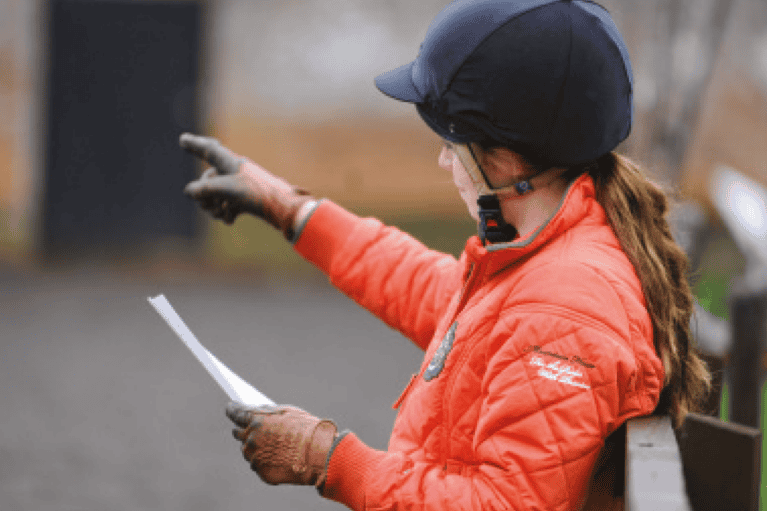
Finally, have a look around your yard to spot any areas where your behaviour or methods could become more sustainable and less damaging to the environment. Chat to fellow liveries to pool their suggestions and put up signs to remind people to turn off lights and taps.
Once you start thinking about ways you could improve on what you do, you’ll soon come up with even more ideas to help everyone play their part in looking after our beautiful planet.




